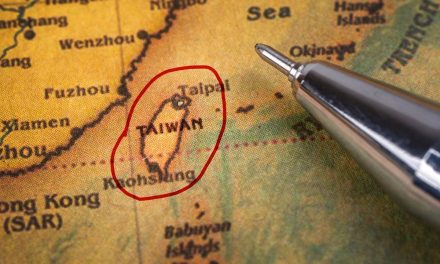Here are seven interesting things about China that surprised me as a foreign visitor.
I consider myself a pretty open-minded traveler.
Before jetting off into the unknown, I tend to do as much research as I can on a country.
I make sure I’m aware of the most common customs foreigners should know about to avoid offending the locals.
And, before a vacation I’ll usually read up on tips from other travelers on dealing with the more challenging aspects of traveling in the country.
Now that I’ve visited China, I’d like to share with you some of my own pearls of wisdom.
So, here are seven really interesting things about China. Hopefully you’ll learn a thing or two!
1. China’s long-distance transport system is awesome
China has the largest and most sophisticated high-speed rail network in the world.
High-speed trains have changed how people live, work and travel in China.
Giant metropolises and rural townships hundreds of kilometres apart are now connected by a rail network that can turn a 100-mile journey into a quick commute.

China’s fast trains are impressive. Image supplied by Mike Cairnduff.
China’s high-speed trains are modern, super-comfortable and surprisingly affordable – especially compared to Europe or Japan.
This makes them one of the best ways for tourists to travel long distances.
2. China is full of happy faces
Think of China in terms of nothing but Western stereotypes and negative media stories, and this imagined China would probably be very miserable.
Yes, political unrest, corruption, internet censorship, and dodgy environmental management are still all very real problems in China.
However, China is so much more than its problems. As a nation, China is optimistic and forward-thinking. It’s a country full of energy and ambition and excitement.
A stroll through a city park is a sure way to put a smile on your face.
‘Dancing grannies’ are a feature of almost every city park.
Decked out in the complete attire, from bright aerobics get-up to authentic ballroom gowns, these ladies see no shame in shimmying away in full public view. They don’t seem to have a care in the world.
If you have the guts to join in, you’ll find it an amazingly freeing experience. And the ladies will love you for it!
The ‘rude’ stereotype may ring true when it comes to crowded, high-stress places, but stroll through the streets of a quiet suburb and you’ll be met with curious faces and warm, welcoming smiles.
Many locals, even with the most rudimentary English skills, will go out of their way to help a tourist looking lost and stranded.
If you really want to know what Chinese people are like – talk to them!

You’ll see plenty of smiling faces in China. Image supplied by Christian Wilmsen.
Younger Chinese in particular are usually extremely open and receptive to exchanging ideas with foreigners, or at least practicing their English skills.
Strike up a conversation with the student pouring your beer at the bar. Hang out in spots where expats and locals co-mingle and you’ll discover making friends with the so-called ‘close-minded’ Chinese people is easy.
You’ll be crushing it at karaoke (KTV) in no time with your new friends. And you’ll soon discover the hardworking Chinese love a good time as much as anyone!
3. Censorship has profoundly affected Chinese society
One evening over a warm Tsingtao beer, I was chatting to the lovely 19-year-old waitress working at my hostel.
We’d been comparing notes about our home countries, and I was incredibly taken aback to discover how little a young, educated urban Chinese person knew about the world beyond China’s borders.
When the subject of animals came up, she asked me if Australia (where I’m from) had polar bears.
We’ve all heard about internet censorship in China.
The so-called Great Firewall of China, which blocks access to scores of foreign websites, like Google, Facebook and Reddit, has proved to be extremely effective.
Even though a reasonably computer-savvy user could probably get around the firewall, a lot of people simply don’t see the need.
Why would you want Facebook when all your friends are on WeChat?

Did you know that the internet is censored in China? Image by Gerd Altmann on Pixabay.
Censorship runs deep throughout the school curriculum, news outlets and consumer media.
China has its own massive entertainment industry and still imports very little overseas culture.
What is allowed in is carefully screened. Chinese viewers aren’t used to viewing films that portray cultural ideas and values vastly different than their own.
Nationalism and intense cultural pride are part and parcel of Chinese society. But talking to people about the differences between my culture and theirs, I was always met with curiosity, never closed-mindedness or competitiveness.
But consider this.
In 2018, over half a million Chinese students studied abroad. And, according to a Chinese Tourism Academy survey, Chinese tourists made 140 million outbound trips in the same year.
As we all know, nothing changes your worldview as profoundly as travel.
Censorship might still have a powerful effect on the average Chinese without the means to go aboard, but an exchange of cultures in China is happening across physical borders instead of internet cables.
As millions of Chinese return from overseas full of new experiences and ideas, China’s closed society eventually has to open (at least in some respects).
Travel tip: If you want to access Western internet using Wi-Fi in China, you’ll need a VPN. Here’s a good review on the best VPNs that work in China.
4. China is ethnically diverse
This has to be one of the most interesting things about China.
People overwhelmingly tend to think of the country as an ethnically homogeneous society.
While Han Chinese account for just over 91% of China’s 1.4 billion-strong population, there are a further 55 recognized ethnic minority groups.
These people have greatly influenced the cultural and societal make-up of many regions in China.
While relations with the rest of China are tense among a few minority groups (e.g. Uyghurs), most ethnic minorities in China do not face persecution.
In fact, these culturally proud people have successfully preserved a unique cultural identity for generations.

Ethnic minority women in China. Image supplied by Christian Wilmsen.
Traveling across China, your journey will be colored by the wildly varying customs, cuisine and cultural traditions of various ethnic groups who have made their own mark on modern China.
For example:
- The walled villages and iconic clay roundhouses of Hakka origin have earned World Heritage status in Fujian province (you can find out more here).
- The ancient ‘wind and rain’ bridges built by the Dong people are a revered feature throughout the rural landscapes of southwestern China.
- Kaili, a thriving modern city in Guizhou actively celebrates its strong Miao heritage. It observes over 120 festivals per year, attracting Miao families from rural villages far and wide.
5. Ghost cities are a real thing
Here’s another really interesting thing about China.
In the mid-2000s, an inflated property market sparked a construction craze across the country.
Entire cities were born overnight, each made up of enough towering skyscrapers to accommodate hundreds of thousands of new residents.
Although many were built on cheap land in far-flung corners of China’s provinces, investors snapped them up.
But the residents didn’t follow. The building frenzy largely ended when the Chinese property bubble burst in 2011.
Today, there are an estimated 50 under-occupied cities throughout the country.
These so-called ‘ghost cities’ are easy to spot, even from the window of a fast-moving train. Sometimes you don’t notice any signs of life at all. And where the buildings stop, miles of empty land stretch out beyond.
Of course, I’d heard about China’s legendary ghost towns, but I was taken aback by how often these random clusters of cookie-cutter apartment blocks would just appear in the middle of nowhere.
In recent years however, some of these abandoned cities have shaken off their ghostly pasts.
Zhendong City in Henan was one of China’s most ambitious new city developments.
For years it was the poster image of China’s failed developments.
Now, with a revitalized urban design, several bank headquarters moving into the city and new metro system, Zhendong’s population is soon expected to reach 5 million.
6. China’s natural beauty is incredible beyond belief
Places of great natural beauty are scattered all over China.
This is something most foreigners are aware of yet traveling in China is still largely associated with the cities.
And, its most famous tourist attractions – the Great Wall, the Terracotta Army of Xi’an and the Forbidden Palace are all man-made.
There are of course very good reasons why these particular attractions are recognized as bucket list destinations.

Beautiful Yangshuo in southern China. Image by Dezalb on Pixabay.
But if you’ve seen much of China beyond the cities, you’ll realize there’s a serious debate to be had when it comes to what makes China one of the world’s great travel destinations.
As one of humankind’s most ancient civilizations, China’s 1,400 year history and rich culture is virtually unrivaled.
It’s this history and culture that attracts the majority of foreign tourists to China. The pretty scenery is sometimes regarded as just a bonus.
On my first trip to China, I didn’t stay too long in the big cities. Being a nature lover, I was keen to see the country beyond the typical images of bright lights and traffic-choked streets.
I expected China to be beautiful. I’d seen the travel photography blogs. I’d watched a few documentaries about China.
But seeing the country’s beauty with my own eyes was beyond anything I’d expected.
I was spellbound by the karst limestone landscapes of Yangshuo. And I adored the picture-perfect Longji Rice Terraces.
I recommend any traveler to China to spend time in its natural heritage areas and see how incredibly beautiful this country is for yourself.
Look into places like:
- Jiuzhaigou Valley’s jade and turquoise lakes
- The otherworldly stone pillars of Zhangjiajie in Hunan
- The rugged snow peaks and alpine forests of Yading
- The magnificent rainbow cliffs of Zhangye National Geopark in Gansu.
You’ll soon understand why the most famous Chinese paintings are all landscapes.
And, why China’s natural beauty, as celebrated as it is, is still overlooked and underappreciated by far too many foreign tourists.
A couple of final travel tips
As I mentioned earlier, if you want to use Wi-Fi in China, you’ll need a VPN to access all your favorite websites and apps. You can check out this page for more information.
Also, if you want to have a safe trip, don’t forget about your vaccinations for China. You’ll be surprised at the number of vaccinations that are commonly recommended.
I hope you enjoyed my blog on the interesting things about China that surprised me as a foreigner. I’ve also written one about the truth about China if you want to dig a bit deeper.




















